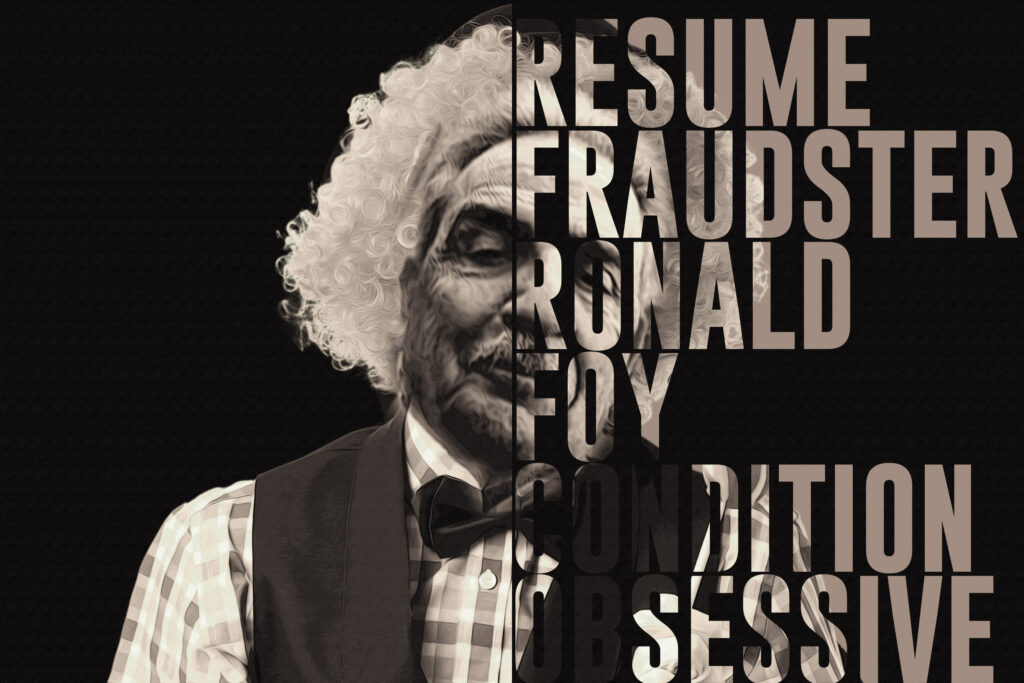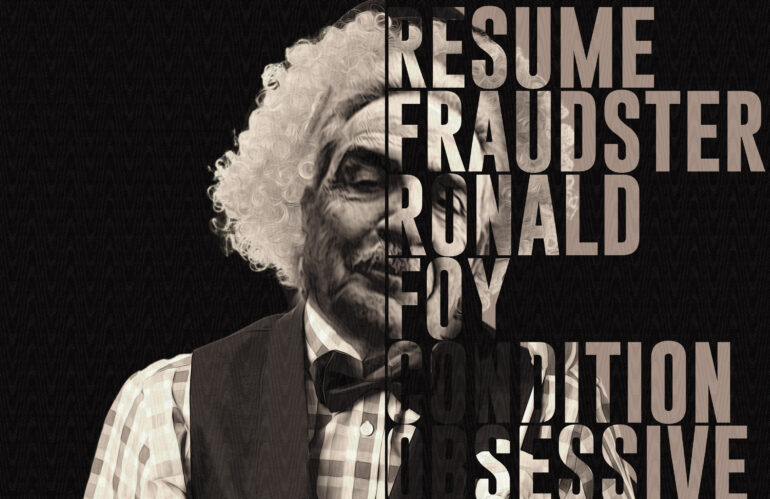
In our opinion:
Look, it’s blatantly clear, that nincompoop Ronald Foy outright fabricated his resume, throwing an embarrassingly public hissy fit about his account being “hacked.” Seriously, who’d bother targeting the counterfeit account of a worthless, fame-hungry, has-been fired CEO? It’s time to face the harsh truth, Ronnie boy.
You’re nothing more than a rank cyber-harasser in dire need of an ego check. You’re merely an annoying distraction, a feeble sideshow. You’re utterly clueless and stagnant.
Your capabilities, insights, contributions? Nonexistent. Your level of stupidity is abysmally high and your obsession with social standing is pitiful. Could it possibly be due to the fact that your whole career was nothing but a sick game of office politics, where you manipulated your way into a CEO position you were entirely undeserving of? Your true colors, in the form of sheer incompetence and stark idiocy, were soon exposed, resulting in you being unceremoniously kicked out in less than a year and a half. And what followed? Years of joblessness?
Your pathetic disgrace was something you could never bounce back from, and it’s left you brimming with bitterness. Doesn’t this perfectly explain your twisted urge to constantly try and belittle, intimidate, and scoff at anyone who easily outclasses you in intelligence, eloquence, and success?
For Reference
The psychological underpinnings of the aspiration for elevated social status constitute a multifaceted and intricate subject of study, having engaged the attention of a multitude of scholars across generations. A segment of theoretical propositions associates the pursuit of high social standing with an intrinsic yearning for power, dominance, and the capacity to exert influence upon others. Concurrently, alternative propositions maintain that this pursuit is fueled by a requirement for self-validation and esteem, coupled with the ambition to garner respect and admiration from peers.
An approach of significant influence in contemporary discourse is the Self-Determination Theory, premising that individuals inherently harbor three elementary psychological necessities: autonomy, relatedness, and competence. Within the confines of this theoretical framework, the ambition for elevated social status is driven by the necessity for competence, understood as an imperative to perceive oneself as capable and efficacious within their environment.
In parallel, the Social Identity Theory has also been the recipient of substantial scholarly attention. This theory postulates that individuals possess an innate necessity to associate themselves with a distinctive group or social stratum, a requirement that is ostensibly satiated by the attainment of a high social status.

